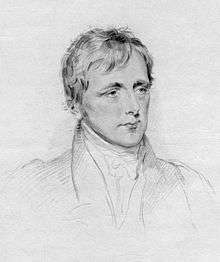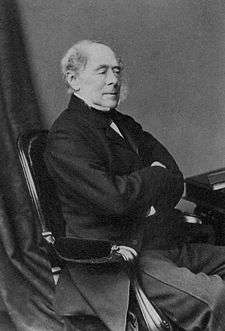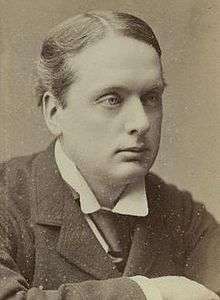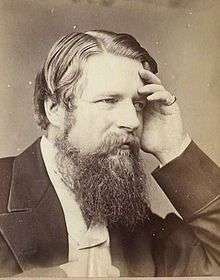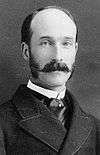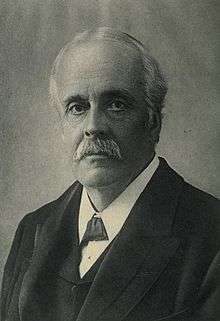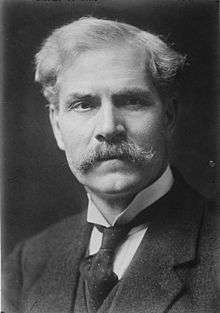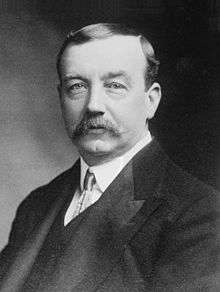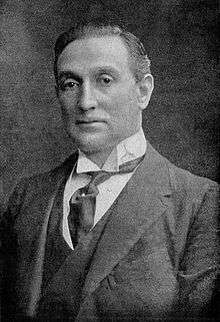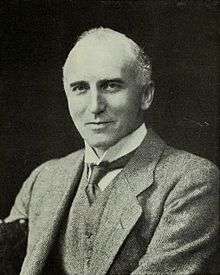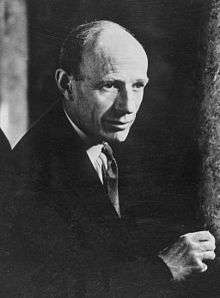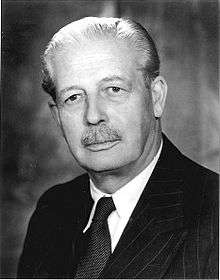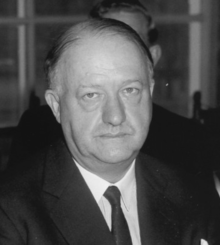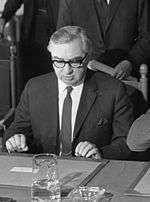Secretary of State for Foreign and Commonwealth Affairs
| United Kingdom Secretary of State for Foreign and Commonwealth Affairs | |
|---|---|
|
Royal Arms as used by Her Majesty's Government | |
|
| |
| Foreign and Commonwealth Office | |
| Style |
The Right Honourable (Within the UK and the Commonwealth) His/Her Excellency (In international correspondence)[1] Foreign Secretary (Informal) |
| Member of |
British Cabinet Privy Council National Security Council Council of the European Union |
| Reports to | The Prime Minister |
| Residence | |
| Seat | Westminster, London |
| Appointer |
The British Monarch on advice of the Prime Minister |
| Term length | No fixed term |
| Inaugural holder | Charles James Fox |
| Formation | 27 March 1782 |
| Deputy |
Sir Alan Duncan Minister of State for Europe and the Americas |
| Website |
www |
.svg.png) |
| This article is part of a series on the politics and government of the United Kingdom |
|
|
|
|
|
Her Majesty's Principal Secretary of State for Foreign and Commonwealth Affairs, normally referred to as the Foreign Secretary, is a senior official within the Government of the United Kingdom and head of the Foreign and Commonwealth Office. The office is a cabinet-level position, and is considered one of the Great Offices of State. It is considered a position similar to that of Foreign Minister in other countries.
The Secretary of State's remit includes: relations with foreign countries, matters pertaining to the Commonwealth of Nations and the Overseas Territories in addition to the promotion of British interests abroad.[2] The Foreign Secretary also has ministerial oversight for the Secret Intelligence Service (MI6) and the Government Communications Headquarters (GCHQ).[3]
The current Foreign Secretary is former London Mayor Boris Johnson, who was appointed by Prime Minister Theresa May in July 2016.
Position
The position of 'Secretary of State for Foreign Affairs' was created in the British governmental reorganisation of 1782, in which the Northern and Southern Departments became the Home and Foreign Offices, respectively. The position of 'Secretary of State for Foreign and Commonwealth Affairs' came into existence in 1968 with the merger of the functions of 'Secretary of State for Foreign Affairs' and 'Secretary of State for Commonwealth Affairs' into a single Department of State. The India Office was a predecessor department of the Foreign Office.
The Foreign Secretary is a member of the Cabinet, and the post is considered one of the Great Offices of State. The Foreign Secretary works out of the Foreign Office in Whitehall. The post's official residences are 1 Carlton Gardens in London and Chevening in Kent. In the 2006 reshuffle, Margaret Beckett became the first (and only) woman to hold the post.
List of Foreign Secretaries
| Colour key (for political parties) |
|---|
Secretaries of State for Foreign Affairs, 1782–1968
Secretaries of State for Foreign and Commonwealth Affairs, 1968–present
| Name | Portrait | Term of office | Political party | Prime Minister | |||
|---|---|---|---|---|---|---|---|
| Michael Stewart | .jpg) |
17 October 1968 | 19 June 1970 | Labour | Harold Wilson | ||
| Sir Alec Douglas-Home | .jpg) |
20 June 1970 | 4 March 1974 | Conservative | Edward Heath | ||
| James Callaghan | |
5 March 1974 | 5 April 1976 | Labour | Harold Wilson | ||
| Anthony Crosland |  |
8 April 1976 | 19 February 1977 (Died) | Labour | James Callaghan | ||
| David Owen | 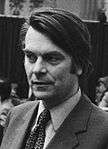 |
22 February 1977 | 4 May 1979 | Labour | |||
| The Lord Carrington | |
5 May 1979 | 5 April 1982 (Resigned) |
Conservative | Margaret Thatcher | ||
| Francis Pym |  |
6 April 1982 | 11 June 1983 | Conservative | |||
| Sir Geoffrey Howe | .jpg) |
11 June 1983 | 24 July 1989 | Conservative | |||
| John Major |  |
24 July 1989 | 26 October 1989 | Conservative | |||
| Douglas Hurd | .jpg) |
26 October 1989 | 5 July 1995 | Conservative | |||
| John Major | |||||||
| Malcolm Rifkind | 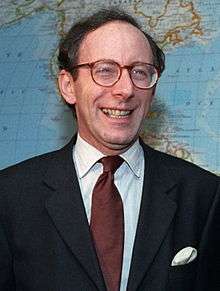 |
5 July 1995 | 2 May 1997 | Conservative | |||
| Robin Cook |  |
2 May 1997 | 8 June 2001 | Labour | Tony Blair | ||
| Jack Straw |  |
8 June 2001 | 5 May 2006 | Labour | |||
| Margaret Beckett |  |
5 May 2006 | 28 June 2007 | Labour | |||
| David Miliband | 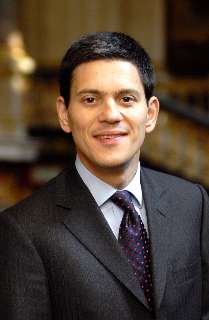 |
28 June 2007 | 11 May 2010 | Labour | Gordon Brown | ||
| William Hague | .jpg) |
11 May 2010 | 14 July 2014 | Conservative | David Cameron (I) | ||
| Philip Hammond |  |
14 July 2014 | 13 July 2016 | Conservative | |||
| David Cameron (II) | |||||||
| Boris Johnson |  |
13 July 2016 | Incumbent | Conservative | Theresa May (I · II) | ||
See also
- Parliamentary Under-Secretary of State for Foreign Affairs
- Permanent Under-Secretary of State for Foreign Affairs
- Secretary of State for Commonwealth Affairs
- Secretary of State for Commonwealth Relations
- Secretary of State for the Colonies
- Secretary of State for Dominion Affairs
- Foreign minister
- Great Offices of State
References
- ↑ https://www.un.int/protocol/sites/www.un.int/files/Protocol%20and%20Liaison%20Service/hspmfm.pdf
- ↑ "Secretary of State for Foreign and Commonwealth Affairs". Government of the United Kingdom. Retrieved 4 September 2014.
- ↑ "Ministerial responsibility". GCHQ Site. 2016-03-23. Retrieved 2017-05-25.
Day-to-day ministerial responsibility for GCHQ lies with the Foreign Secretary.
External links
| Wikimedia Commons has media related to Foreign Secretaries of the United Kingdom. |


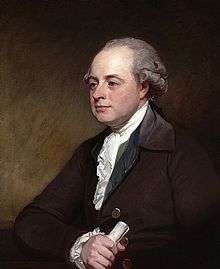



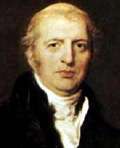
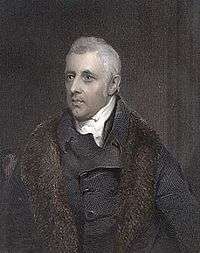


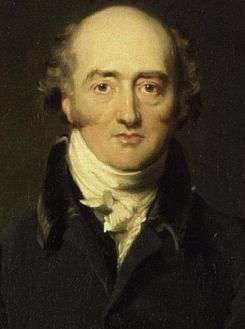

.jpg)
